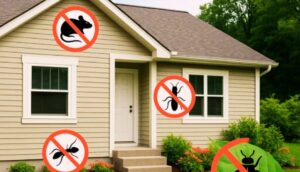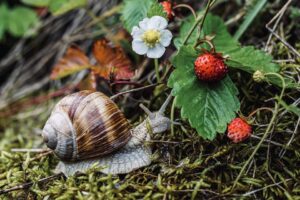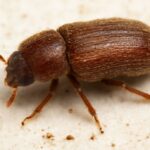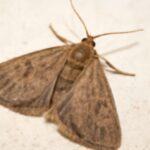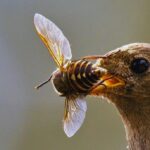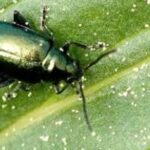How Attracting Birds Can Help Control Insect Pests in Your Garden

Designing and nurturing a beautiful garden is one of life’s simple joys. Whether you’re creating an outdoor oasis at your home or adding to your garden’s charm to boost property value, the peaceful atmosphere that comes with colorful flowers, buzzing bees, and fluttering butterflies is truly rewarding. But, like most great things, gardening isn’t without its challenges. From pesky insects to soil pH imbalances, maintaining a thriving garden can sometimes feel like an uphill battle.
But here’s the good news: you don’t need to resort to harsh chemicals or complex solutions to keep your garden healthy. By harnessing the power of nature, particularly the helpful birds around us, you can keep insect pests at bay and create a harmonious ecosystem in your garden. With just a few thoughtful steps, you can invite these feathered friends to help you with pest control, all while adding to the beauty and charm of your garden.
Understanding the Problem: Insects and Their Destructive Behavior
Having worked on a variety of garden projects, from luxurious resorts to cozy homes, I’ve seen firsthand how troublesome insects can be. While these little creatures are a natural part of the garden environment, their presence can quickly turn into a nightmare for gardeners. They chew on plants, leave behind disease, and can cause serious damage to your carefully crafted landscape. But how do you deal with these uninvited guests while ensuring you don’t harm the environment?
Over the years, I’ve explored a variety of methods, always aiming for solutions that are safe for both the environment and the gardener. One of the most successful ways I’ve found is through biological control—introducing natural predators that can help manage pest populations without causing harm to the garden ecosystem.
Traditional Pest Control Methods: Pros and Cons

Before we dive into attracting birds, let’s take a quick look at the methods most gardeners typically rely on to deal with pests.
-
Chemical Insecticides: While effective in the short term, chemicals often leave harmful residues that can affect the soil, water, and other living organisms, including pets, wildlife, and beneficial insects like bees.
-
Beneficial Insects: This biological control method involves introducing insects that are natural predators of the pests you’re trying to control. Ladybugs, for instance, are known to munch on aphids, while parasitic wasps can help control caterpillar populations. While this method is highly effective, it may not always be the most practical or sustainable.
-
Repellent Plants: Certain plants, like lavender, marigolds, and mint, are known to repel pests. This method can work well in some cases but is often not enough to fully control an infestation.
Each of these methods has its place in a gardener’s toolkit, but none of them quite offer the long-term, harmonious solution that attracting birds can provide.
The Role of Birds in Pest Control: Nature’s Silent Warriors

Birds are natural pest controllers, and they’ve been doing this job for millennia. By attracting these birds to your garden, you invite a team of natural predators that will help you keep insect populations in check. From snacking on harmful pests like aphids, beetles, and caterpillars, to keeping your garden free from the constant threat of overpopulation, birds are an essential component in maintaining the health of your garden.
The best part? Not only do birds help reduce the pest problem, but they also contribute to a balanced ecosystem, promoting the health and vitality of the plants and other wildlife in your garden.
How to Attract Birds to Your Garden for Insect Control
Creating a bird-friendly garden is very easy and can be lots of fun. Here are some simple ways to attract birds to your landscape, turning it into a haven for both you and your feathered friends.
1. Provide a Water Source
Birds need water for drinking and bathing, so adding a birdbath to your garden is a great way to make it more inviting. Choose a shallow, wide dish or birdbath with clean water, and place it in a quiet spot where birds feel safe. You’ll be amazed at how quickly birds will visit once they have a reliable water source.
2. Offer a Food Source
Bird feeders are another excellent way to attract birds. While it might be tempting to fill them to the brim, the key is moderation. You don’t want to overfeed them, as the goal is to lure them to your garden to feast on the insects, not become reliant on the feeders. Offer seeds that attract pest-eating birds like finches, sparrows, and chickadees, who love seeds from your garden’s plants.
3. Install Birdhouses
Providing a place for birds to nest is a win-win for both you and the birds. Installing a couple of birdhouses in different parts of your garden will give the birds a safe, secure place to raise their young while they work to keep your garden free from pests. When choosing birdhouses, consider the type of birds you want to attract and their specific needs, such as hole size and materials.
4. Plant Native Shrubs and Trees
Native plants are crucial for attracting birds, as they provide natural shelter, nesting sites, and food sources. Many birds are particularly attracted to fruiting trees, such as mulberry or dogwood, and shrubs like holly, which provide berries that birds love. By incorporating a variety of native plants, you’ll create a habitat that is both appealing and functional for local bird populations.
5. Create a Safe Haven
Birds, like all animals, need to feel safe in their environment. To make your garden more inviting, avoid using harmful chemicals that could poison or harm birds. Keep outdoor cats indoors, as they can be a threat to birds. Also, try to avoid noisy or disruptive areas where birds might feel threatened, as they need quiet spaces to rest and breed.
The Benefits of Attracting Birds to Your Garden
There are countless benefits to inviting birds into your garden, both for your plants and for your overall enjoyment. Here’s why it’s worth the effort:
-
Natural Pest Control: Birds will naturally eat a wide range of insect pests, including aphids, caterpillars, beetles, and grasshoppers, helping you reduce the need for chemical pesticides.
-
Improved Pollination: Birds such as hummingbirds play a role in pollinating plants, which can help your flowers and fruiting plants thrive.
-
Enhanced Garden Beauty: Watching birds flutter around your garden is a delightful experience, adding a sense of peace and joy. Their songs, colors, and playful antics can bring a garden to life in ways you never imagined.
-
Environmental Benefits: By choosing organic pest control methods, you contribute to a healthier ecosystem. Birds, beneficial insects, and plants all work together to create a balanced environment that’s sustainable in the long term.
10 FAQs About Attracting Birds for Pest Control
1. What types of birds are best for controlling pests in my garden?
-
Small insect-eating birds like sparrows, chickadees, and warblers are excellent for controlling garden pests.
2. Will birds eat all types of insects in my garden?
-
Birds tend to prefer soft-bodied insects like aphids, caterpillars, and beetles, but they may also eat other garden pests like ants and spiders.
3. How do I attract birds to my garden without feeding them too much?
-
Offer just enough food to attract birds, such as seeds in feeders or native plants with berries, while encouraging them to focus on eating pests.
4. Can I use birdhouses for insect control?
-
Yes! Birds use birdhouses to nest and raise their young, which can help control insect populations in your garden.
5. How do I prevent my birdbath from becoming a mosquito breeding ground?
-
Regularly change the water in your birdbath and add a few drops of bird-safe mosquito repellents to deter larvae.
6. Do birds only eat insects, or do they eat plants as well?
-
While birds primarily eat insects, some may also consume fruits, seeds, or nectar, depending on the species.
7. What time of year are birds most active in gardens?
-
Birds are most active in spring and summer, especially during breeding season, when they need more food to feed their young.
8. How can I ensure my garden remains safe for birds?
-
Avoid using harmful pesticides, keep outdoor cats indoors, and provide quiet, sheltered spaces for birds to nest.
9. Can I attract birds if I live in a city or urban area?
-
Yes! Even urban gardens can attract birds by incorporating native plants, water sources, and birdhouses.
10. Will attracting birds help with all insect problems?
-
While birds are excellent for controlling many pests, they may not solve every issue. It’s important to combine bird-friendly practices with other sustainable gardening techniques.
Conclusion
Attracting birds to your garden is an easy and natural way to keep insect pests under control. By providing water, food, and shelter, you’ll create a welcoming environment for a variety of bird species that will help you maintain a healthy, beautiful garden. Not only will you be protecting your plants, but you’ll also be creating a safe haven for birds to thrive in.
Gardening with nature in mind is one of the smartest and most sustainable ways to cultivate your outdoor space. So, why not start today? Begin by adding a birdbath, a birdhouse, and a few native plants to your garden. Over time, you’ll begin to see the transformation as birds help you maintain a healthy, pest-free environment while also bringing beauty and peace to your landscape.



